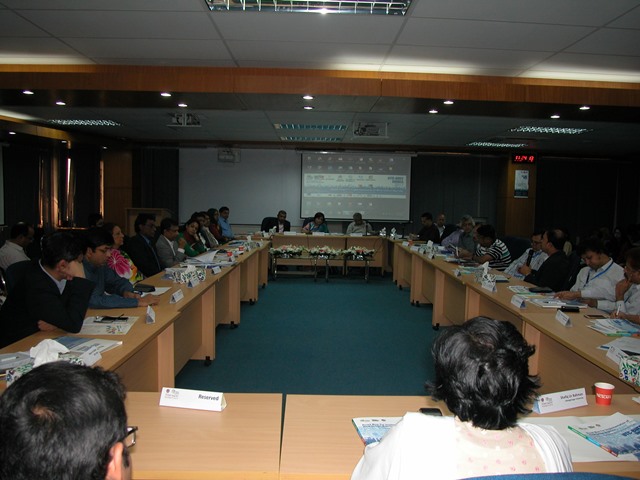
Housing, transportation, disaster management and governance should be inclusive in urban planning. In all development project, it is essential to identify the stakeholders to get achieve the goals of the project. To solve the housing problem, we should focus on the need of low income people. Besides, in transport sector we should avoid building more and more flyovers and elevated expressways and need to focus on non-motorized transport and pedestrians. Dhaka is a densely populated city. So there should be proper strategy to take initiative in any disaster. And to ensure all these, we should have good urban governance, where there will be accountability. Speakers expressed as above on the 2nd day of two days long (24th and 25th November 2017) Urban Thinkers Campus (UTC) organized at ITN center of Bangladesh University of Engineering and Technology (BUET) on ‘Road Map for Implementation of New Urban Agenda (NUA): Involvement of Multi-Stakeholders in Development Process’. Work for a Better Bangladesh Trust is one of the co-organizers of the UTC.
Professor of BUET Dr Sarwar Jahan talked about stakeholder analysis. He said, stakeholder analysis is very important for any project. In this regard it is necessary to select, evaluate and identify their relevance with the project. And to achieve the goal of the project stakeholders must have clear idea about the project.
Director of Urban Development Directorate Dr KZH Tawfik said that, urban area will be drastically changed within 2050. The vision of New Urban Agenda is that the city is for all. It is important to ensure everyone’s right over the city. In this regard we need to focus on women and girl child and empower them.
Superintending Engineer of LGED MD Shafikul Islam Akand said that, LGED is a project implementing organization. To ensure development in the grass root level it is necessary to build the capacity of Paurashava.
Chief Executive of BELA Syeda Rizwana Hasan said that, community engagement should be ensured in all development projects. We should take care that; our natural resources should not be demolished while implementing a project.
Urban Analyst of UNDP Ashekur Rahman said that, we should have a vision regarding our cities. The leaders from grass root level should be engaged with the process.
Traffic Engineer of Dhaka Transport Coordination Authority (DTCA) Anisur Rahman said that, we are facing lots of obstacles to implement BRT (Bus Rapid Transit) and MRT (Mass Rapid Transit), such as- less space, lack of capacity and less money. If feeder road is not ensured then it will not be possible to reduce congestion.
Professor of Civil Engineering Department of BUET, Shamsul Haque said that, we have ignored public transportation in urban planning and built flyovers and elevated expressways. As a result our congestion problem has increased more.
Program Manager of Work for a Better Bangladesh Trust Maruf Hossain said that, the way we have planned the city, we have less focus on people. We need to improve facilities for the pedestrians. Instead we are focusing on cars. At present, we are celebrating car free street event in Manik Mia Avenue first Friday of each month to reclaim street for people. We need to expand this kind of initiatives.
Architect Iqbal Habib said that, we are focusing only on rich people. In Strategic Transport Plan and Revised Strategic Transport Plan, pedestrians and public transportation issue were mentioned but those were absent in implementation. Development projects should be inclusive and accountability should be ensured.
Deputy Secretary of Ministry of Disaster Management and Relief Naila Ahmed said that, we used to work on relief but currently we are also working on disaster management. We have prepared an action plan and road map for disaster management.
The two days long program was hosted by Professor of urban and Regional Planning Department, BUET, Ishrat Islam. In the program, road map was prepared to achieve the goals of New urban Agenda and Sustainable Development Goals by 2030. In the closing ceremony, Chief Coordinator of SDG MD Abul Kalam Azad was present as Chief Guest. The program ended with the Dhaka Declaration of two days program.

